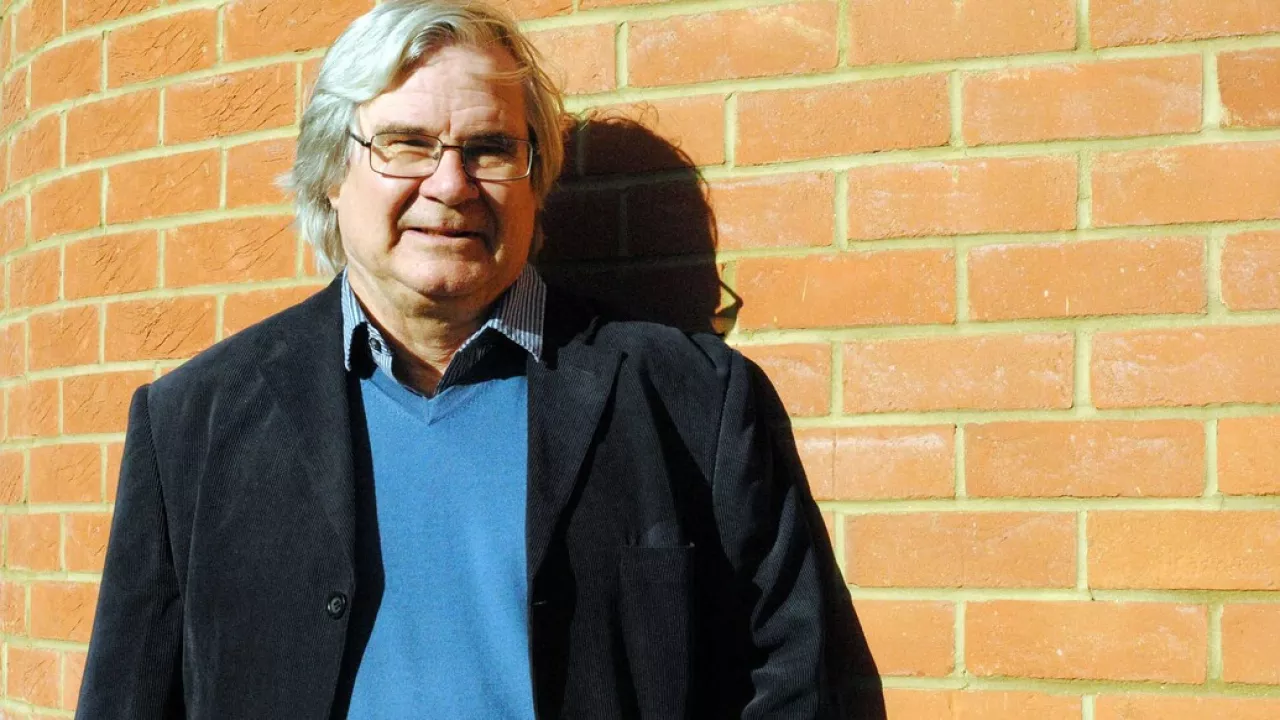UEL-led review finds no evidence ECT beats placebo
UEL-led review finds no evidence ECT beats placebo
Published
03 July 2020
Share
Electroconvulsive Therapy (ECT), which is still administered to about a million people annually, is ineffective for its target demographic, according to a University of East London-led research review.
Dr John Read, professor of clinical psychology at the University of East London (UEL) and lead author of the study, was among 40 mental health professionals, researchers, ECT recipients and their family members, to sign a letter sent today to Peter Wyman, chair of the Care Quality Commission, calling for the immediate suspension of ECT throughout the NHS, "pending research to determine its efficacy and safety."
The letter, copied to ministers and the CEOs of all NHS Mental Health Trusts, is responding to the findings of the UEL-led study, 'Electroconvulsive Therapy for Depression: A Review of the Quality of ECT vs Sham ECT Trials and Meta-Analyses', which was published recently in Ethical Human Psychology & Psychiatry.
Dr Read collaborated on the study with Dr Irving Kirsch of Harvard Medical School, and Dr Laura McGrath, the Open University.
In conjunction with the high risk of brain damage from ECT this absence of efficacy evidence means that the cost-benefit ratio is so appalling that there is no place for ECT in evidence-based medicine.
"This body of research is of the lowest quality of any I have seen in my 40-year career."
Dr John Read, professor of clinical psychology at UEL, said.
The review re-examined all studies comparing ECT with the placebo 'Sham ECT' - where the general anaesthetic is given but the electric shock withheld - for depression. The review also assessed the five meta-analyses that claim ECT is effective.
The meta-analyses ignore the many limitations of the studies they include, the review found. The 11 studies have a mean quality score of 12.3 out of 24 on a quality sale developed for the review. Eight scored 13 or less. None convincingly demonstrate that they are double-blind. Five selectively report findings, only four report ratings by patients, and none of them assess quality of life.
The studies are small, involving an average of 37 people. Four of the 11 found ECT significantly superior to Sham ECT at the end of treatment, five found no significant difference and two found mixed results - including one where the psychiatrists reported a difference, but patients did not. Only two higher quality studies report follow up data; one produced a near-zero effect size in the direction of ECT, and the other a small effect size in favour of Sham ECT.
Dr Irving Kirsch, associate director of placebo studies, Harvard Medical School, said, "I don’t think many ECT advocates understand just how strong placebo effects are for a major procedure like ECT.
"The failure to find any meaningful benefits in long-term benefits compared to placebo groups are particularly distressing. On the basis of the clinical trial data, ECT should not be used for depressed individuals."
Professor Amanda Broderick, vice-chancellor and president, University of East London said, "In these challenging times, the work of these impressive academics offers us hope. Their research will lead to new solutions and ideas - that will endow society with the tools needed to surmount the difficult challenges our world currently is faced with.
"We are proud to be part of this collaboration between our School of Psychology and Dr Irving Kirsch at Harvard Medical School for this review."
The review concluded, "The quality of most Sham ECT vs ECT studies is so poor that the meta-analyses were wrong to conclude anything about efficacy, either during or beyond the treatment period. There is no evidence that ECT is effective for its target demographic - older women, or its target diagnostic group – severely depressed people, or for suicidal people, people who have unsuccessfully tried other treatments first, involuntary patients, or adolescents.
"Given the high risk of permanent memory loss and the small mortality risk, the longstanding failure to determine whether or not ECT works means that its use should be immediately suspended until a series of well-designed, randomised, placebo-controlled studies have investigated whether there really are any significant benefits against which the proven significant risks can be weighed."
According to Dr Read, the letter was sent today, July 2, as it is the 59th anniversary of the death of Ernest Hemingway, the most famous of the millions of casualties of ECT since its invention in 1938. Hemingway took his own life after 20 ECT sessions, writing "Well, what is the sense of ruining my head and erasing my memory, which is my capital, and putting me out of business? It was a brilliant cure, but we lost the patient."
"We hope that by the 60th anniversary of Hemingway's death, this time next year, we will be able to announce to the world that the UK was the first country to finally put an end to this well-intentioned but calamitous error in the history of medicine."
Share
Communications team
Contact us for press and interview requests
